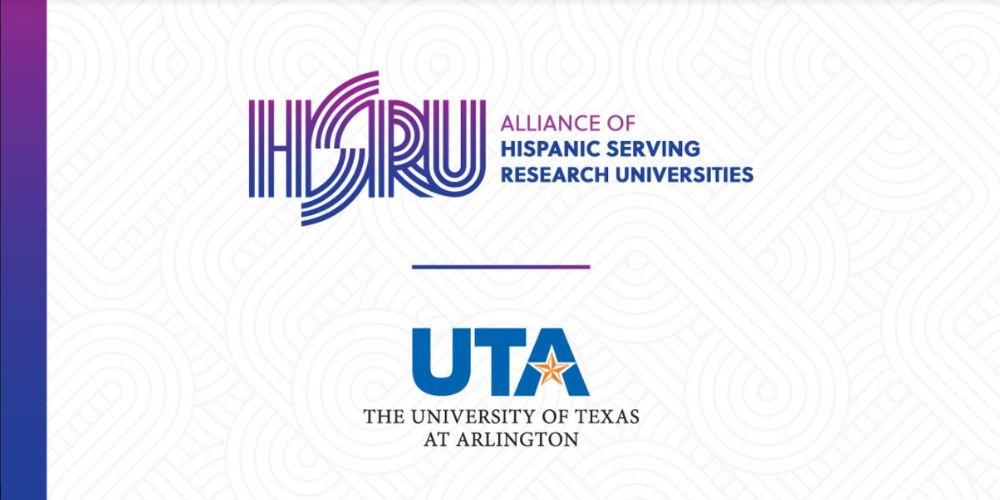20 Largest Hispanic-serving research universities form alliance to increase Hispanic opportunity

Washington D.C. — Twenty of the nation’s top research universities today announced the formation of the Alliance of Hispanic Serving Research Universities to increase opportunity for those historically underserved by higher education.
The 20 universities represent every university that has been both categorized as R1 (very high research activity) by the Carnegie Classification of Institutions of Higher Education and designated as a Hispanic-Serving Institution by the U.S. Department of Education.
“Hispanics are the largest minority group in the United States and are now 17% of the workforce, yet they continue to be underrepresented in higher education. No group is better positioned than we are to expand the pathway to opportunity,” said Dr. Heather Wilson, President of The University of Texas at El Paso and Chair of the Alliance. “We believe we are stronger together than as individual institutions acting alone.”
The HSRU Alliance aims to achieve two key goals by 2030:
- Double the number of Hispanic doctoral students enrolled at Alliance universities, and
- Increase by 20% the Hispanic professoriate in Alliance universities.
“The goals of the HRSU Alliance align with our vision of becoming one of the nation’s most inclusive and impactful research universities,” said Jennifer Cowley, president of The University of Texas at Arlington. “Both UTA and our fellow HRSU Alliance universities are research powerhouses. Together, we have the research and institutional capacity to make an extraordinary difference in Texas and across the nation.”
Representing nine states, the 20 HSRU Alliance universities together enrolled 766,718 students in fall 2020; of those, 33% (254,399) were Hispanic . In 2020, the combined research spending of these universities totaled more than $5.9 billionii.
The HSRU Alliance universities are engaged in thousands of research projects with world-changing outcomes in the arts and humanities, STEM, health sciences, social sciences and other fields. In 2019-20, HSRU Alliance universities produced 11,027 doctoral graduates, of which 13% (1,451) were Hispanic.
“With Hispanics making up less than 6% of U.S. doctoral students, we must be intentional about creating opportunities for Hispanics,” said Dr. Michael Amiridis, outgoing Chancellor for the University of Illinois at Chicago. “We believe this alliance will make rapid progress in advancing Hispanic student enrollment in doctoral programs and broadening pathways to the professoriate by building on our strength as Hispanic-serving research universities.”
Prior to the formal announcement of the HRSU Alliance, the universities began working together on several initiatives. The first project, funded by a $5 million grant from the Mellon Foundation, will conduct cross-regional research and train doctoral students in Latinx humanities. A second initiative, funded by the National Science Foundation, expands opportunities for Hispanic students in computer science.
UTA faculty are working on several Mellon Foundation-funded projects in Latino humanities studies, including:
- Joshua Newton, a Ph.D. student in planning and public policy in the College of Architecture, Planning and Public Affairs (CAPPA), will participate in a research group studying how Latino communities confront environmental injustices and adapt to extreme climate events across the U.S. He also received a fellowship to attend the Crossing Latinidades Summer Institute in Latino Humanities Studies Methodologies and Theories at the University of Illinois at Chicago.
- Ariadna Reyes-Sanchez, assistant professor in CAPPA, is part of a broad collaborative project with University of California at Irvine and University of Illinois-Chicago on how low-income Latinx communities experience and adapt to climate change in Texas, California, and Illinois.
- Cristina Salinas, associate professor of history, is working with a team of scholars from the University of California at Riverside and the University of Arizona to map the political participation and activism of Chicana and Mexicana women in South Texas and Arizona.
The HSRU Alliance began during the pandemic through conversations and distance-enabled meetings among Presidents and Chancellors, as well as faculty and administrators coordinated by the University of Illinois at Chicago. The effort took hold and grew into a determination to formalize the relationship announced today.
“By improving Hispanic representation in academia, this Alliance will change the face of higher education,” said Dr. Kim Wilcox, Chancellor of the University of California at Riverside. “We can bring diverse perspectives into the research conducted by our exceptional faculty, creating opportunities for purposeful careers both in and outside of academia for Hispanic students.”
Universities in the HSRU Alliance include:
Arizona State University
City University of New York Graduate Center
Florida International University
Texas Tech University
The University of Arizona
The University of New Mexico
The University of Texas at Arlington
The University of Texas at Austin
The University of Texas at El Paso
The University of Texas at San Antonio
University of California, Irvine
University of California, Riverside
University of California, Santa Barbara
University of California, Santa Cruz
University of Central Florida
University of Colorado, Denver
University of Houston
University of Illinois Chicago
University of Nevada, Las Vegas
University of North Texas
Learn more about the Alliance of Hispanic Serving Research Universities at HSRU.org.
_____________________________
i Federal Department of Education IPEDS data for Fall 2020.ii National Science Foundation, Higher Education Research and Development Survey, 2020.